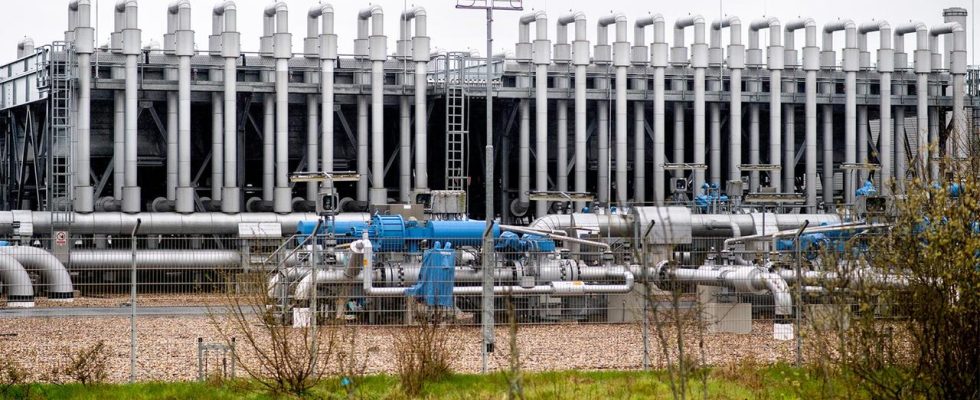Hydrogen should play an important role in the energy transition. According to a current study, however, the storage capacities in Germany will have to be more than doubled.
According to the operators, the underground natural gas storage facilities in Germany are far from sufficient for the hydrogen storage requirements expected in the future. “Our studies have shown that a hydrogen storage capacity of 32 terawatt hours can be provided from the current stock of gas storage facilities,” said Sebastian Bleschke, Managing Director of the Energy Storage Initiative (Ines) industry association.
However, long-term scenarios of the Federal Ministry of Economics assumed that hydrogen storage systems with a capacity of 72 to 74 terawatt hours would be needed by 2045 to implement the energy transition. In order to implement the energy transition according to the long-term scenarios, it would therefore be necessary to more than double the storage potential that can currently be used for hydrogen.
“In view of the fact that we already have by far the largest gas storage capacities in the EU in Germany, both the rededication and the construction of the new storage facility are a major challenge,” said Bleschke.
Use also in the steel production planned
Climate-neutral electricity and the hydrogen produced with it should play a key role in the energy system of the future. For example, new gas-fired power plants should generate electricity from hydrogen when the sun isn’t shining and the wind isn’t blowing. In steel works, it is supposed to remove the oxygen from the iron ore instead of coal. Large amounts of hydrogen would be needed for this in the future. So that there is always enough there, it would have to be cached.
“It is often forgotten that electrolysers for the production of hydrogen and hydrogen power plants will depend on hydrogen storage,” says Bleschke. The so-called electrolysers would produce hydrogen in particular when the electricity supply exceeded the electricity demand and the electricity price was low as a result.
Hydrogen power plants would mainly run when the demand for electricity could no longer be covered directly by renewable energies. “When the power plants need hydrogen, the electrolysis doesn’t work and vice versa. Hydrogen storage is needed especially at these moments.”
So far no commercial one hydrogen storage
Hydrogen storage is therefore a major issue for the operators of natural gas storage facilities. The industry association INES is aware of 23 pilot projects: “They are mostly in an early project stage without a final investment decision and have significantly smaller volumes than is usual for commercial gas storage facilities,” says Bleschke.
“So far, not a single commercial hydrogen storage facility is in operation in Germany,” said the association’s managing director. Accordingly, no conclusive experience with planning, approval and implementation processes existed. In recent years, storage capacities have tended to be reduced rather than built up. “For the development of extensive new projects in the field of hydrogen, the entire value chain will have to be largely rebuilt.”

